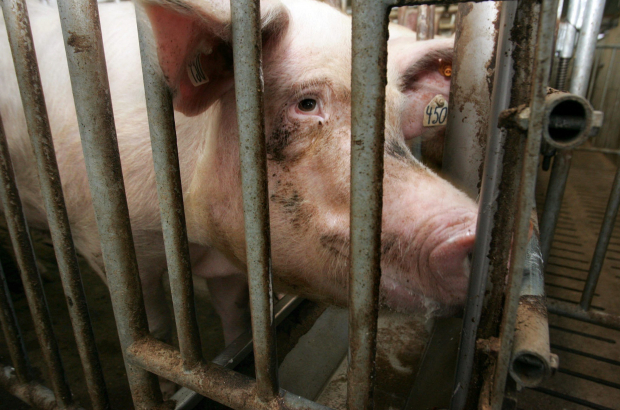- Daily & Weekly newsletters
- Buy & download The Bulletin
- Comment on our articles
Government to exterminate pig population in disease-affected area
Federal agriculture minister Denis Ducarme has announced that all pigs in the area of Luxembourg province where classical swine fever (CSF) has been detected will be destroyed. The action is being carried out in order to prevent the virus that causes CSF from spreading to pig farms, which would be devastating to the industry.
The first case of CSF in Belgium in more than 30 years was found in Luxembourg province’s wild boar population about 10 days ago. Two boar were found dead with the virus, and three more followed a few days later.
There is no vaccine or treatment for the virus, which can infect all species of swine and kills the animal within about two weeks.
Farmers in Wallonia are taking precautions with their livestock in collaboration with the federal food safety agency. Tests for the virus are being continuously carried out, and there is currently no transport of pigs being allowed.
Potential ‘drastic’ consequences
There has so far been no detection of CSF in the domesticated pig population, but Ducarme wants to euthanise pigs in the area as a precaution. “There are six million pigs in Flanders and 400,000 in Wallonia,” said Ducarme. “If this disease breaks out, the economic consequences would be drastic.”
The decision to exterminate the livestock has been made in consultation with the EU, which will fund half of the effort. It is hoped that in so doing a situation will be prevented such as China saw earlier this month, when 38,000 pigs were slaughtered after the outbreak of the disease in several provinces.
“Action must be taken now to protect this sector with an annual turnover of €1.5 billion,” said Ducarme, “and that is directly responsible for some 15,000 jobs.”
In 1985, when the last outbreak of CSF hit Wallonia, 30,000 pigs had to be euthenised. It has not yet been reported how many pigs would be affected now.
Photo: Kurt Desplenter/BELGA

















